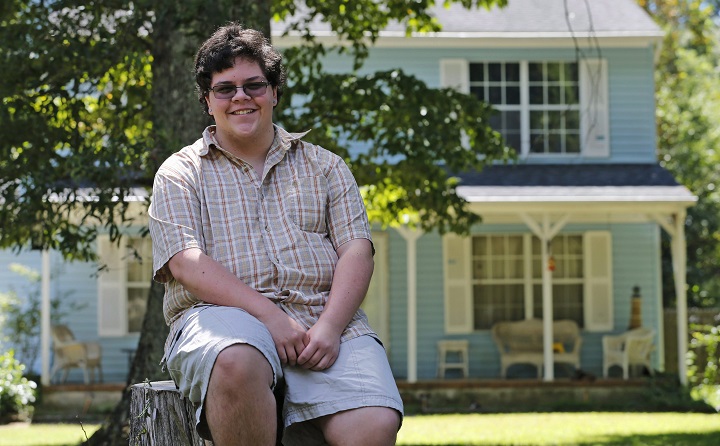The US Supreme Court is returning a transgender teen’s case to a lower court without reaching a decision, leaving in limbo the issue of transgender rights in school settings.

Monday’s action comes after the Trump administration pulled back federal guidance advising schools to let students use the bathroom of their chosen gender, not biological birth.
READ MORE: North Carolina Senate refuses to repeal transgender bathroom law
The justices said in a brief order that they have opted not to decide whether federal anti-discrimination law gives high school senior Gavin Grimm the right to use the boys’ bathroom in his Virginia school.
The case had been scheduled for argument in late March. Instead, a lower court in Virginia will be tasked with evaluating the federal law known as Title IX and the extent to which it applies to transgender students.
WATCH: Trump’s decision on transgender bathroom policy causes backlash from LGBTQ community

For Grimm, the order means that he probably will graduate with the issue unresolved and his ability to use the boys’ bathroom blocked by a policy of the Gloucester County school board. Although he won a court order allowing him to use the boys’ bathroom, the Supreme Court put it on hold last August, before the school year began.
“This is disappointing for trans kids across the country and for Gavin, who are now going to be held in limbo for another year or two,” said Joshua Block, the American Civil Liberties Union attorney who represents Grimm. “But Title IX means the same thing today as it meant yesterday. Lower courts already have held that it protects trans kids.”
WATCH: Department of Justice puts North Carolina on notice their bathroom law violates federal law

Kyle Duncan, the lawyer for the school board, had no immediate comment on the order.
The high court action follows the administration’s recent decision to withdraw a directive issued during Barack Obama’s presidency that said which bathroom to use should be based on students’ gender identity, not biological birth.
The administration action triggered legal wrangling that ended with Monday’s order. In essence, the federal appeals court in Richmond, Virginia, had relied on the Obama administration’s interpretation of Title IX to side with Grimm. The appeals court accepted the administration’s reading of the law without deciding for itself what the law and a related regulation on same-sex bathrooms and locker rooms mean.
READ MORE: Meet the transgender boy who helped change a century-old Boy Scouts policy
No appeals court has yet undertaken that more independent analysis, and the Supreme Court typically is reluctant to do so without at least one appellate opinion to review, and usually more than one.
Similar cases are pending in other parts of the country so it is likely that other appeals courts also will weigh in about the reach of anti-discrimination protections for transgender students.
Both sides in Grimm’s case had asked for the high court to go ahead with the case, even after the administration withdrew the Obama-era directive, although the school board said the case should be delayed.
The justices did not comment on the case beyond their one-sentence order returning it to the 4th U.S. Circuit Court of Appeals.



Comments